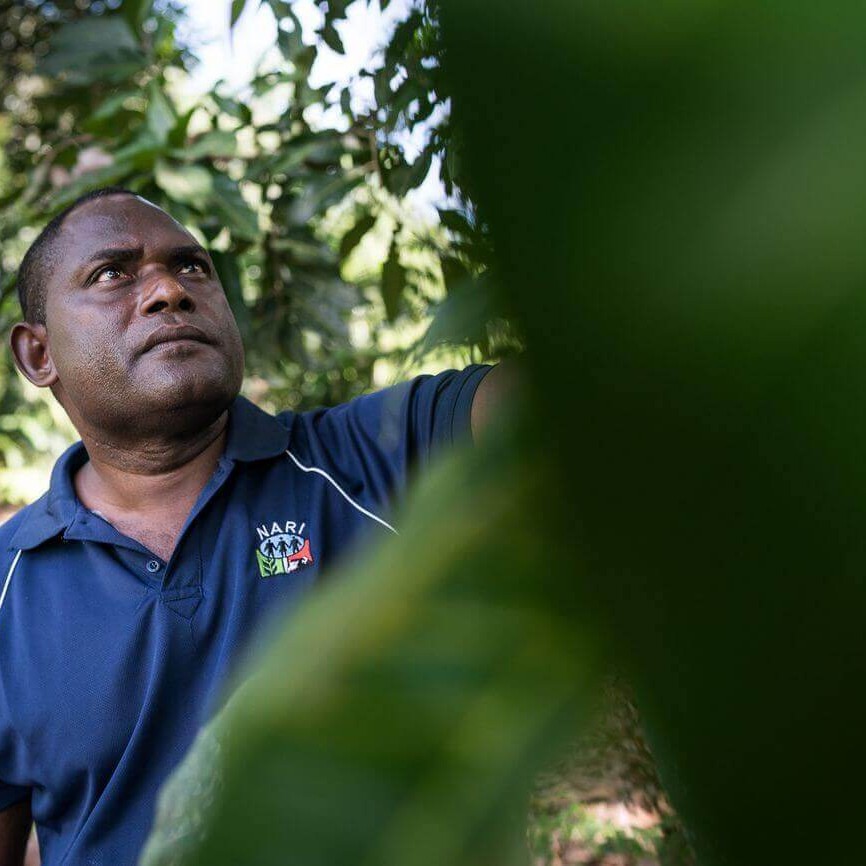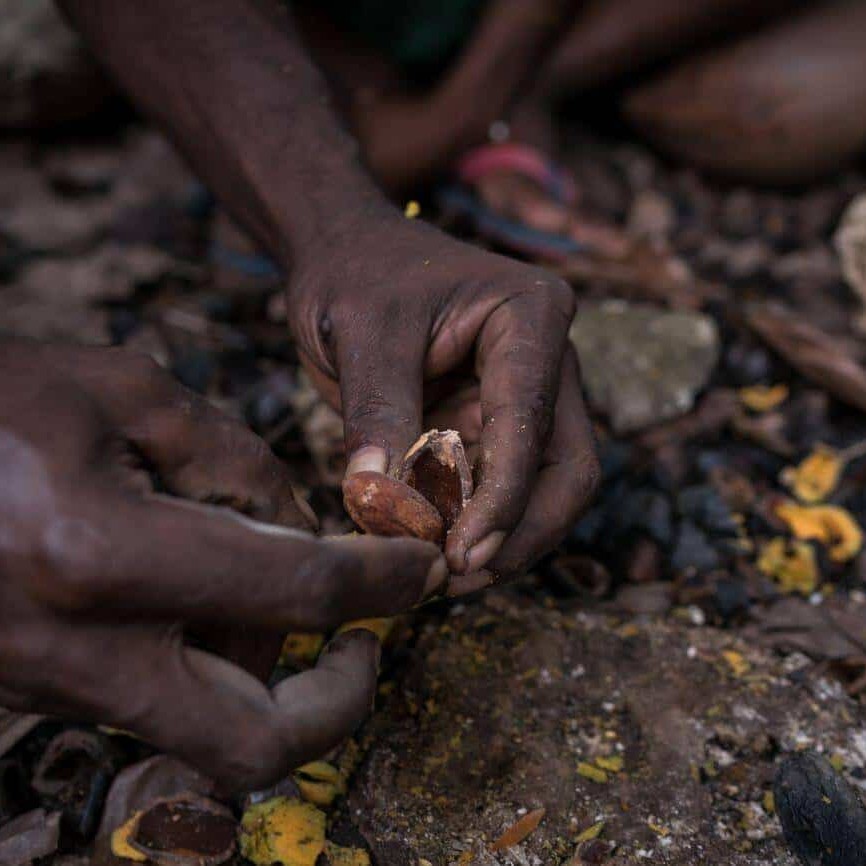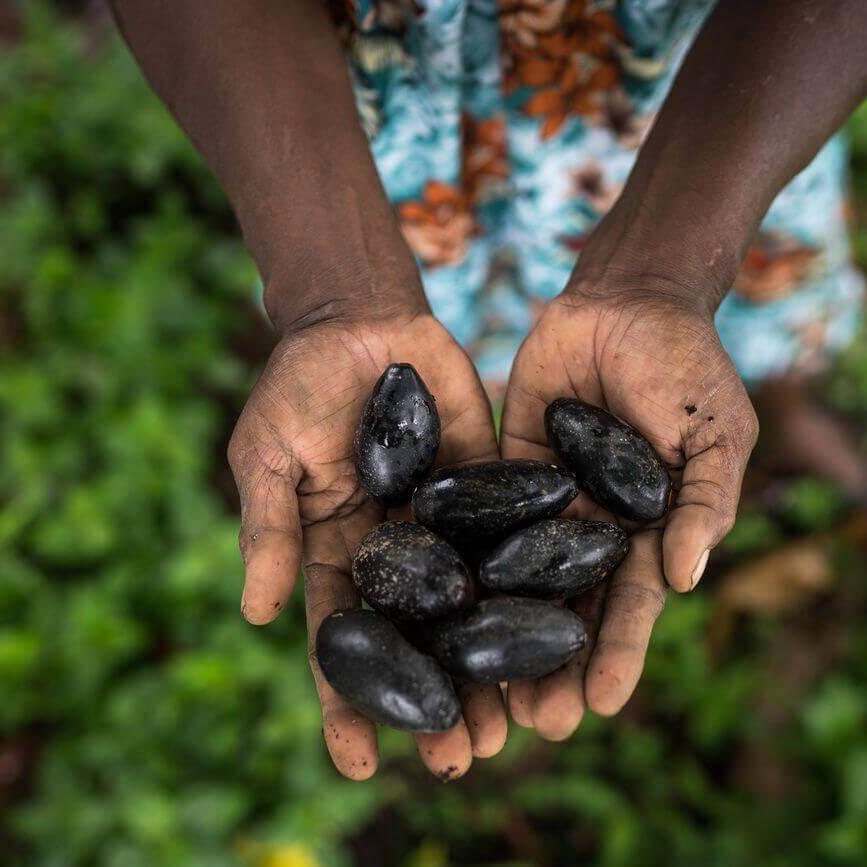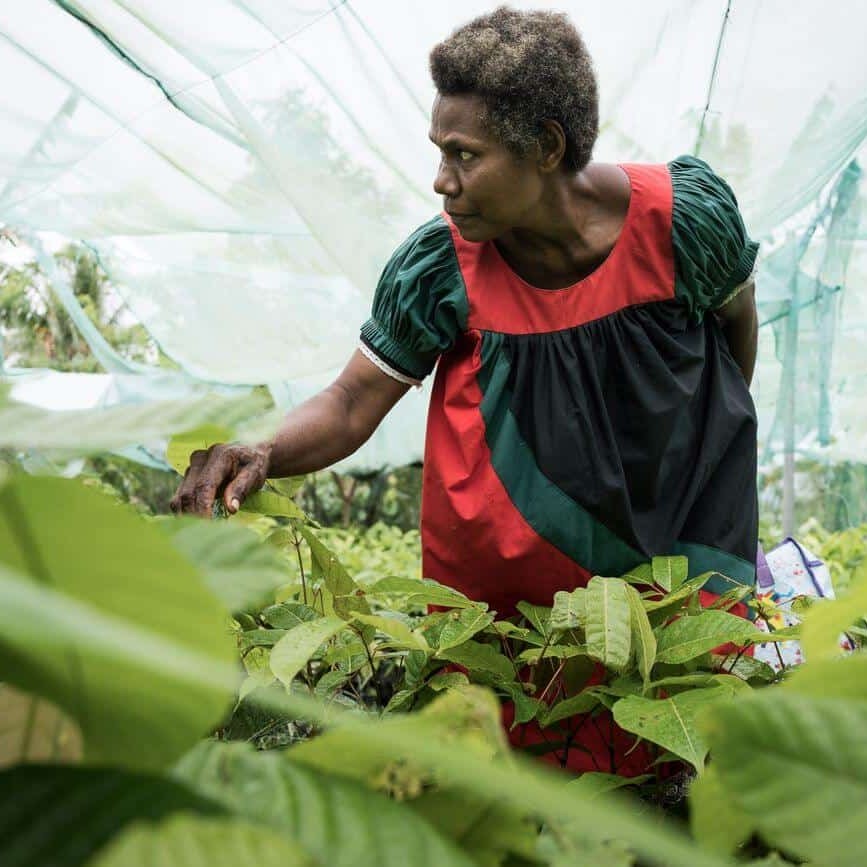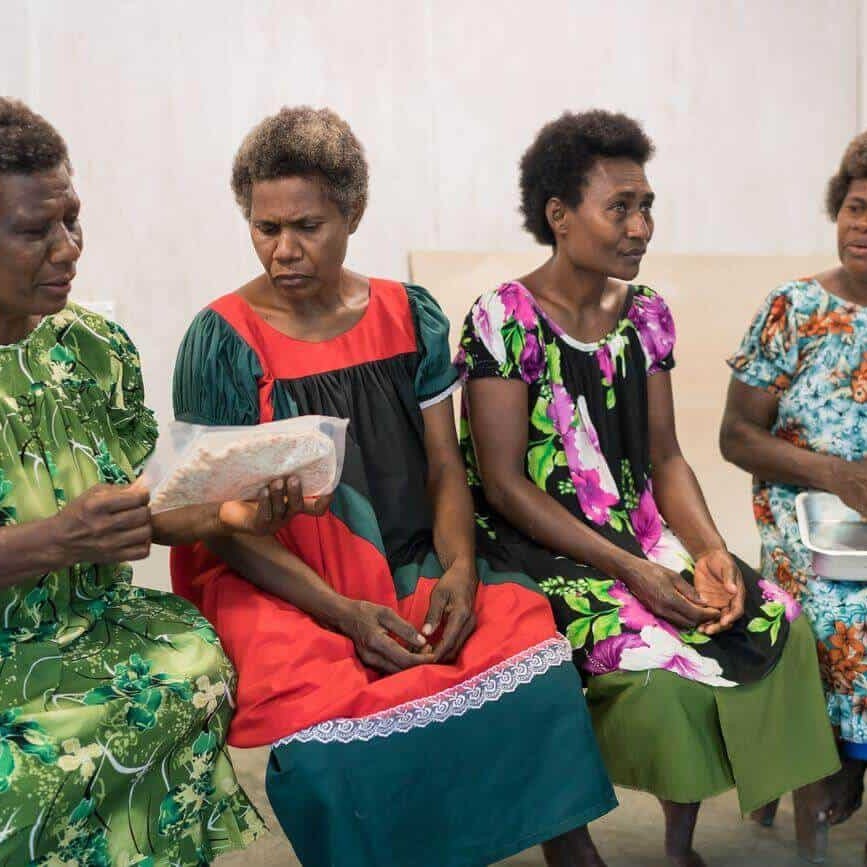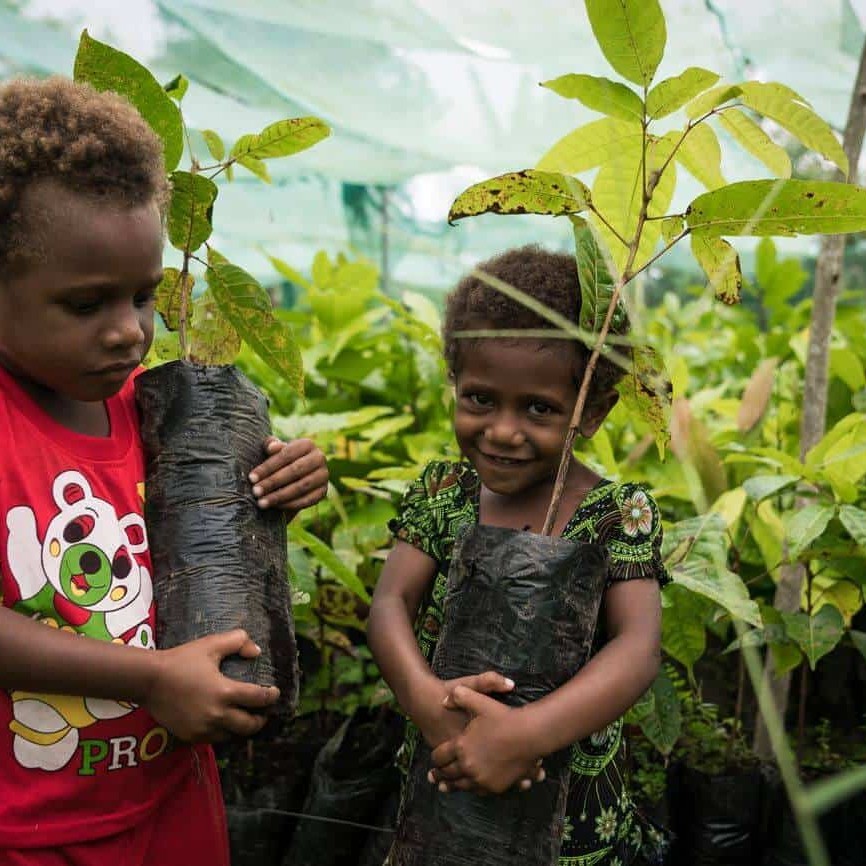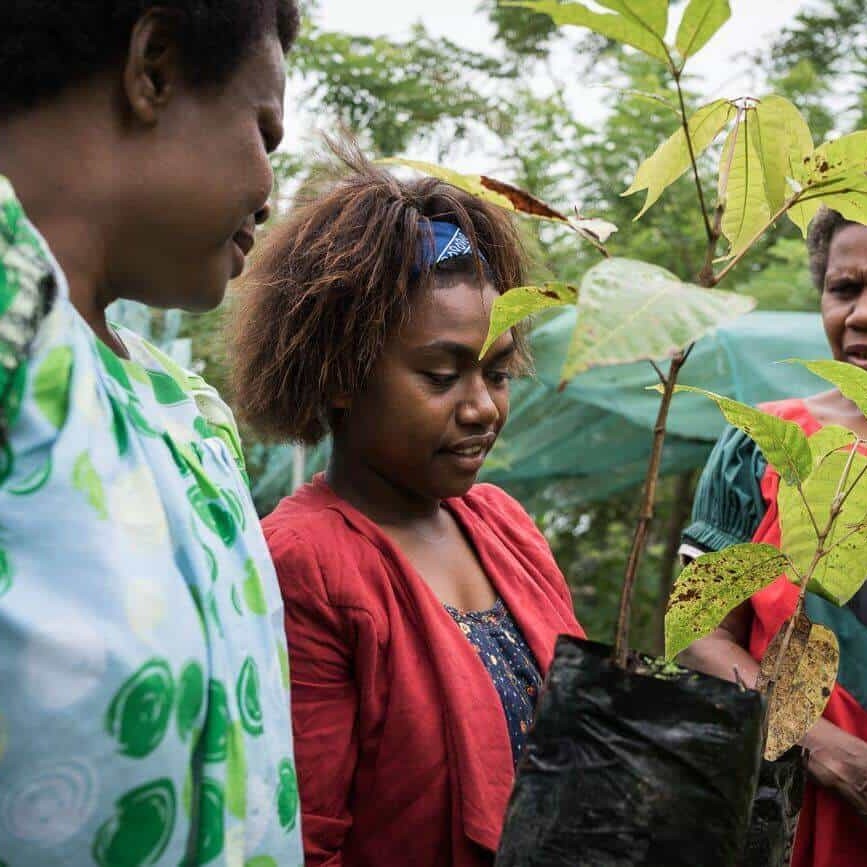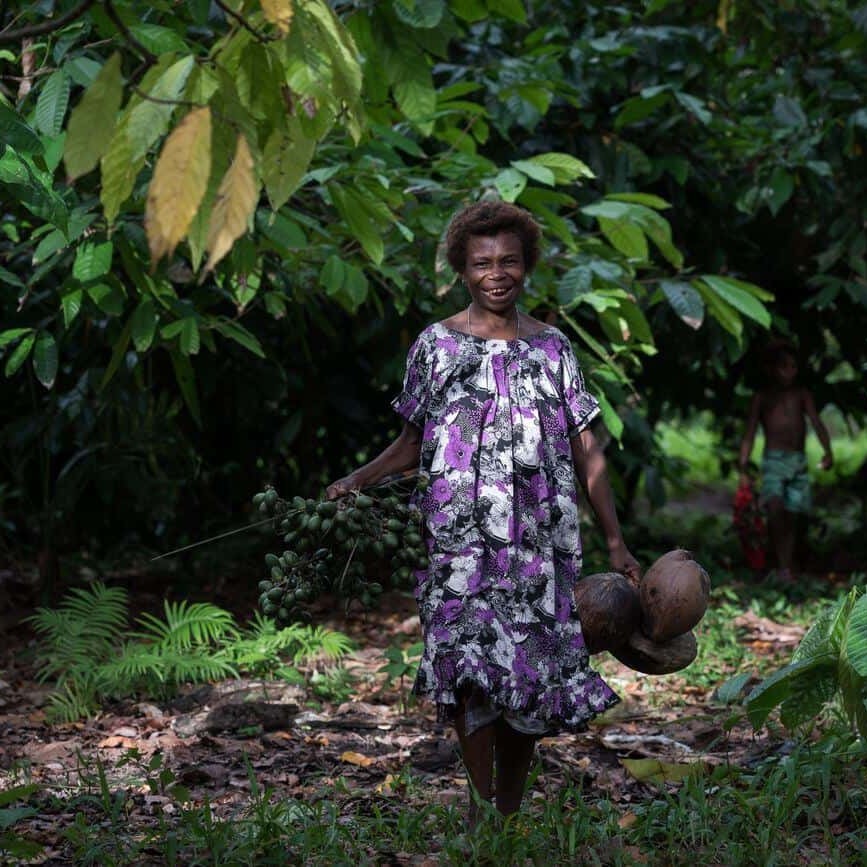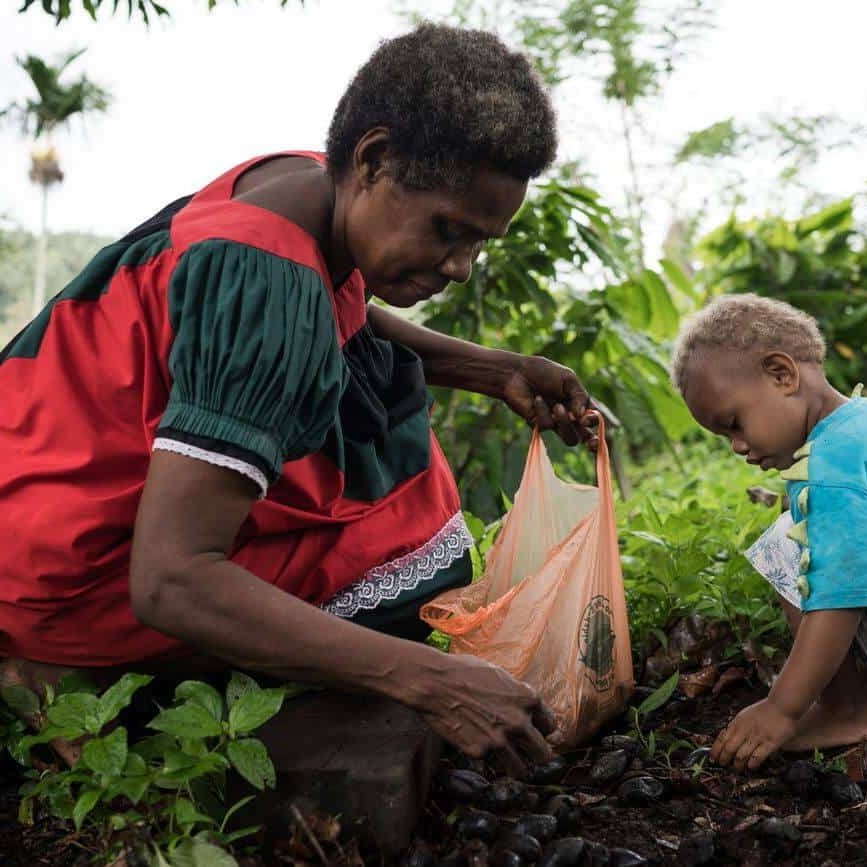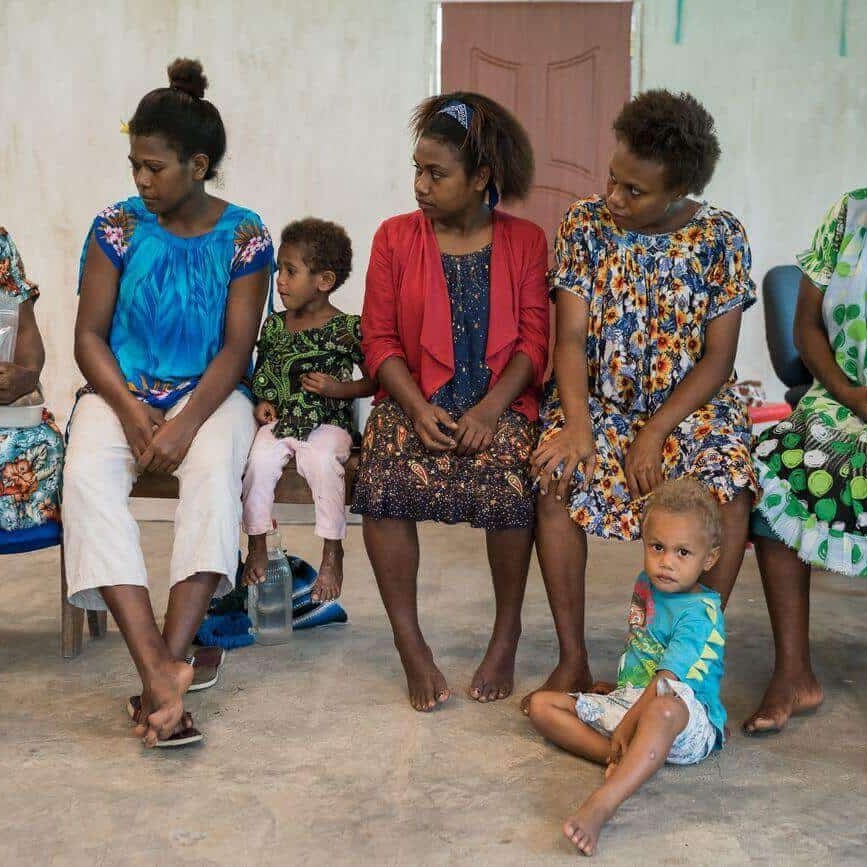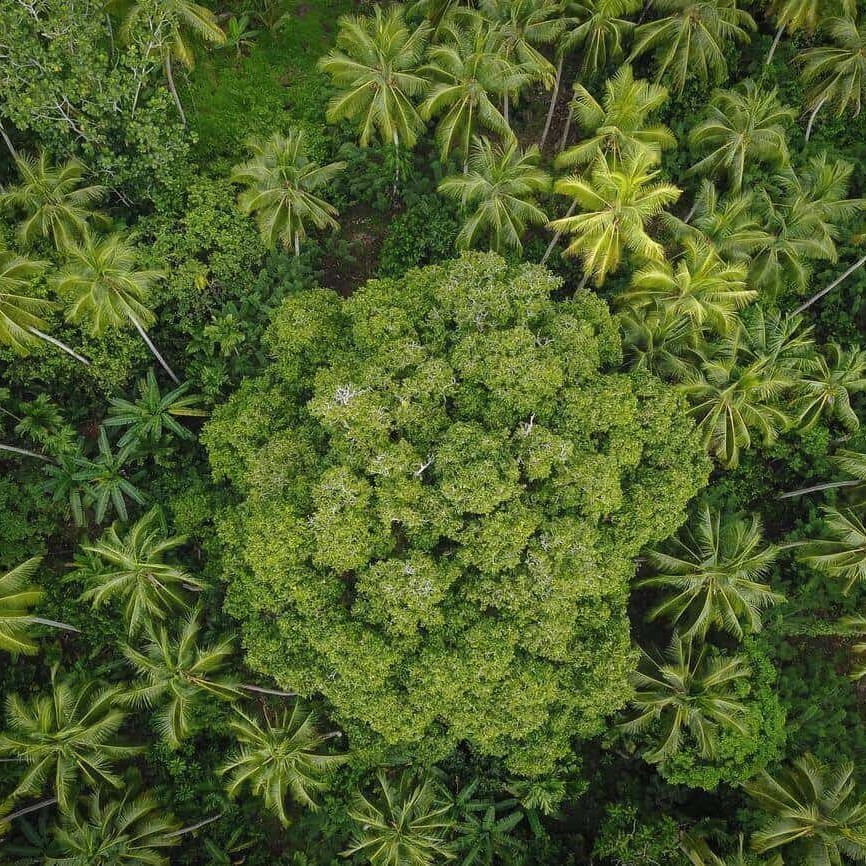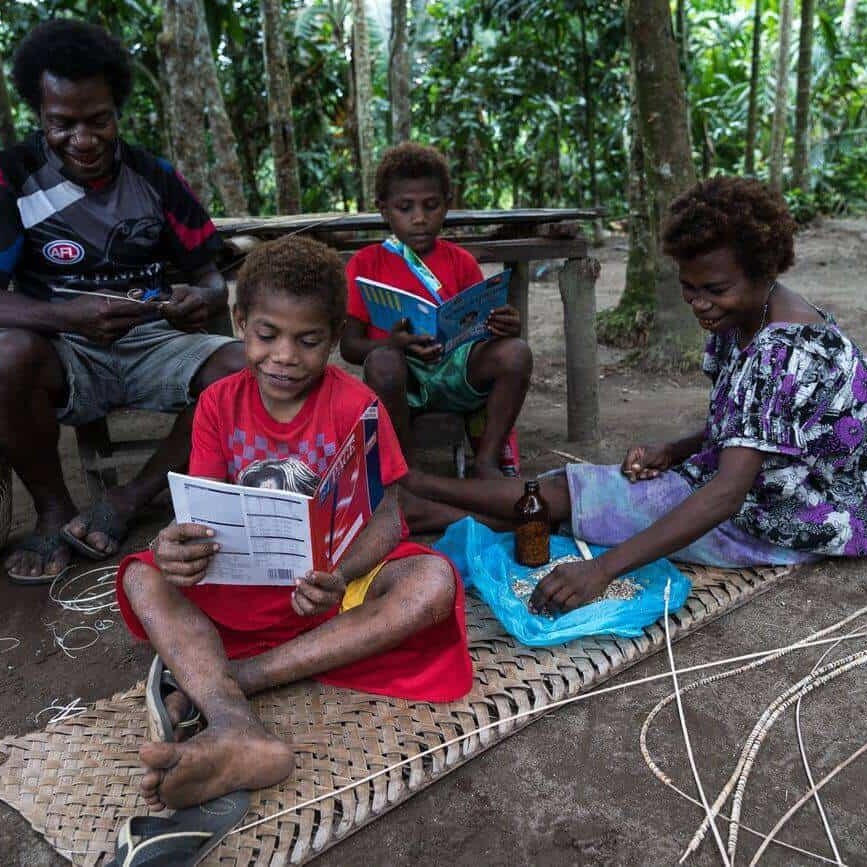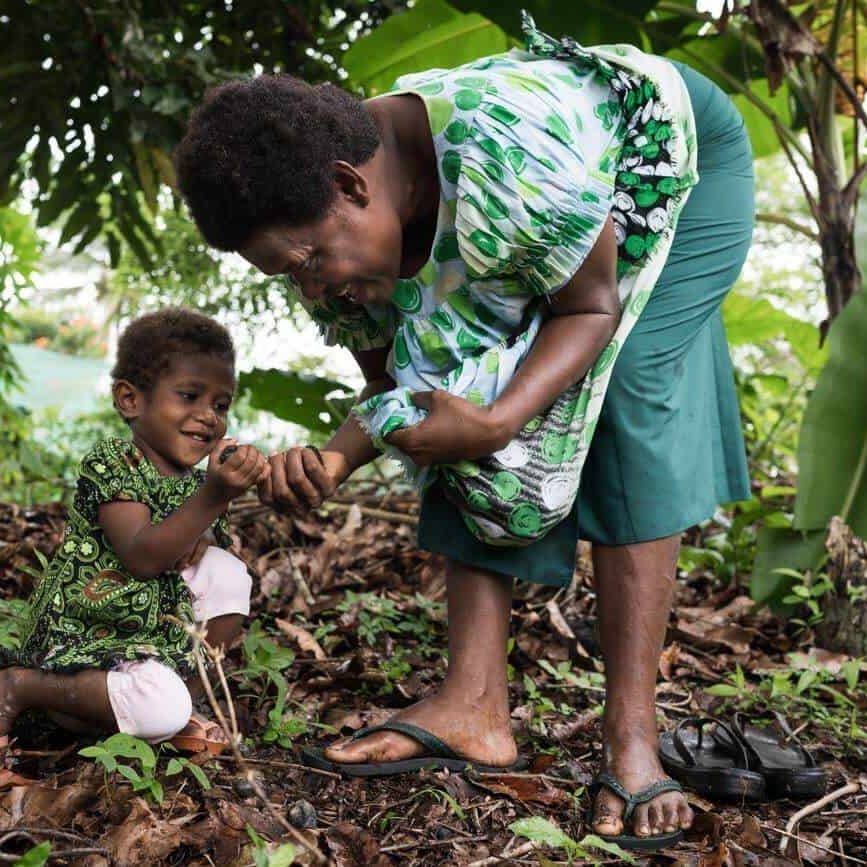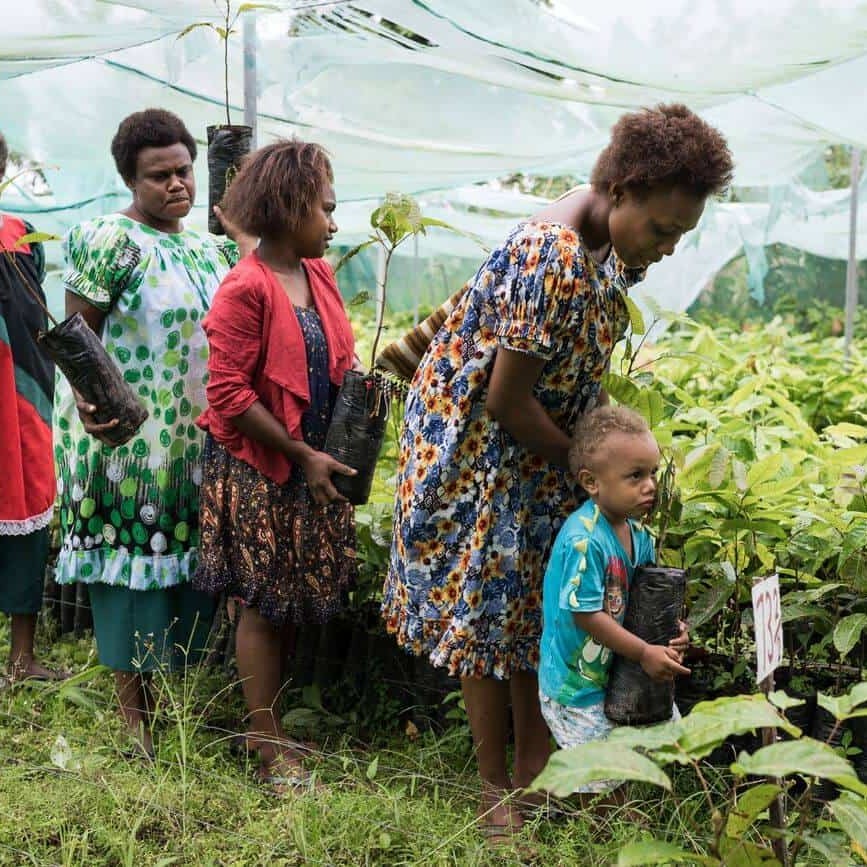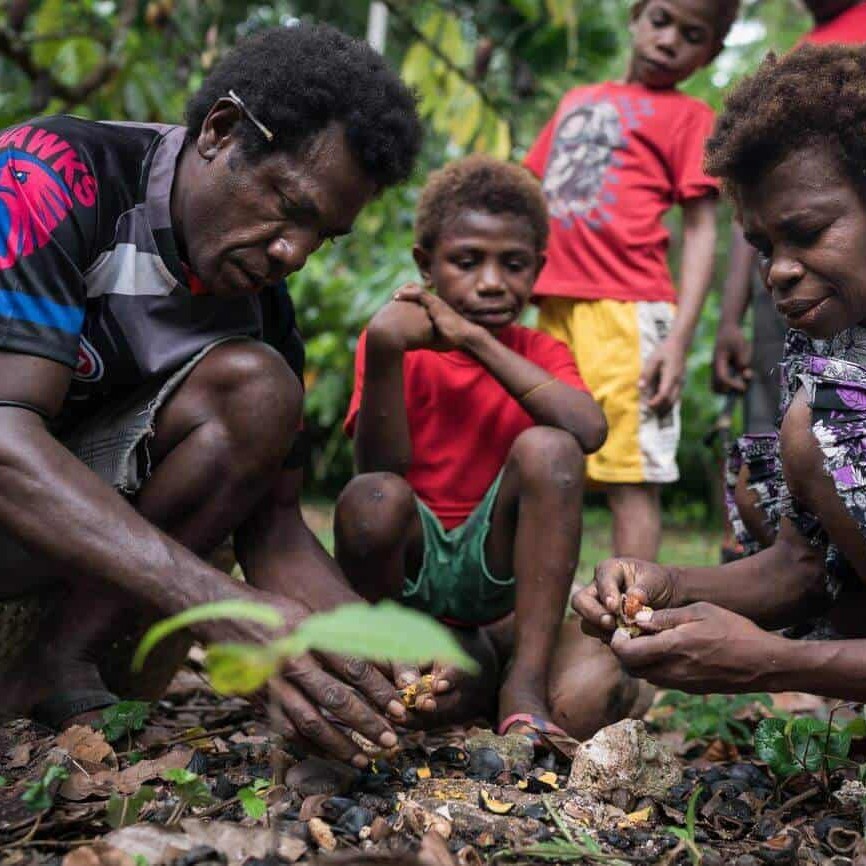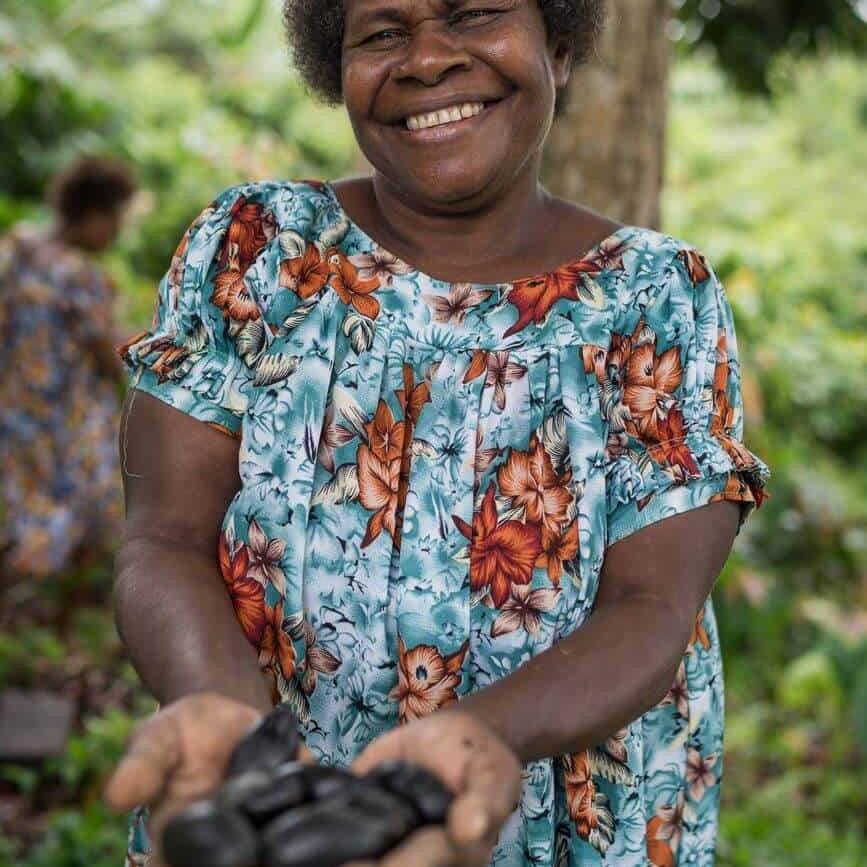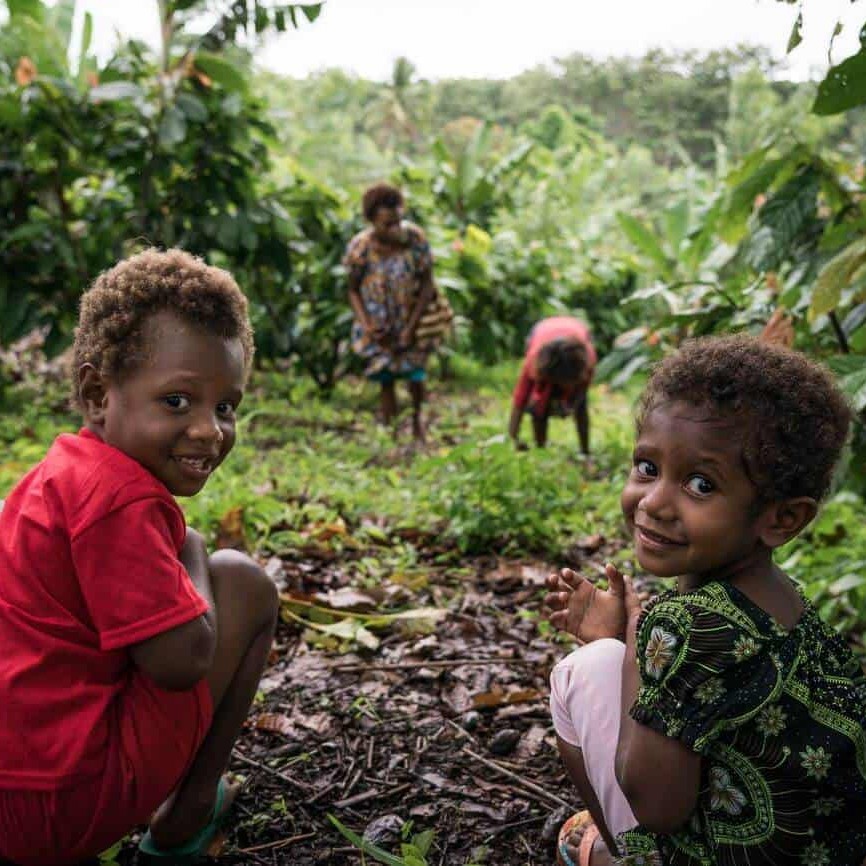This project sought to expand markets and processing of canarium nuts in East New Britain, Papua New Guinea, by strengthening private sector capacity and engagement using nuts from existing trees.
Canarium indicum is an agroforestry tree in Eastern Indonesia and the Pacific that produces edible nuts. Donor agencies have tried to commercialise the industry in Papua New Guinea and the Pacific.
The project suggested that nuts could improve the livelihood of the rural poor in developing countries and meet the Millennium Development Goal of eradicating poverty and hunger. As they are highly nutritious, can be stored for long periods, and can be sold for cash, processed and exported to distant markets. Women in Papua New Guinea grow and trade canarium nuts; they cultivate, harvest, process and sell them.
The project took a whole of value-chain approach. It sought to research markets, provide technical advice, build capacity, mentor businesses, and give private and public sector stakeholders access to infrastructure. It targeted the private sector at three different scales: smallholder and small scale entrepreneurs, small and medium-sized enterprises, and large scale processors.
Project Code: FST/2014/099
Commissioned Organisation: University of Sunshine Coast
Project Leader: Helen Wallace
Collaborating Institutions:
Project Budget: $3.5 million
Project Duration: June 2015 – December 2018
Research Program Manager: Dr Nora Devoe
- Assess the needs of the private sector to participate in the canarium industry
- Develop and undertake research-based interventions that address the needs of the private sector including smallholders, small scale entrepreneurs (especially women) SMEs, and large scale processors
- Develop an appropriate commercial model for a medium scale value adding factory for the canarium industry
- Create a model for public- private partnerships in the canarium industry in PNG


